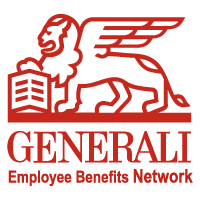The biggest benefit of health apps and virtual GPs

Faced with long waits for diagnosis and treatment thanks to dwindling primary care services and other NHS cutbacks, UK employees in particular - whether working at home or abroad – seem to greatly value the access to such services.
The fact that most employees now have the means to access a range of services in their pockets is also obviously a key driver. According to Statistica worldwide mobile phone penetration is forecast to reach 67% by 2019 and over half of those are smartphone users.
According to Aon’s Benefits & Trends Survey 2018, health apps and virtual GP services now represent one of the biggest employee benefit growth areas.
This trend is expected to accelerate further this year, states the report, as “increased technology adoption supports the growing understanding that employee engagement is critical to any successful wellbeing strategy”.
This sentiment is also articulated in research by Mercer Marsh Benefits, which challenges employers to consider the opportunity of improving employee engagement with health benefits using digital communication platforms and tools. This is highlighted as a way of counteracting rising private healthcare costs.
The firm’s 2017 research Medical Trends Around the World, found that the cost to provide medical and healthcare plans to staff continues to outpace inflation in most major economies but has stabilised to an increase of around 10% per annum.
Shortage of doctors
In theory, engaging employees with 24/7 GP services, in particular, shouldn’t be difficult. The number of people in the UK saying that health is one of the most important issues facing the country has hit an all-time high of 53%, according to the latest data from YouGov.
This followed a poll of medics by YouGov, reported on in The Telegraph, which found that two in three hospitals and half of GP practices now have shortages of doctors.
Of course, this isn’t just isolated to the UK. Globally, the World Health Organisation (WHO) estimates a shortage of 4.3 million physicians, nurses and other health workers worldwide. The reasons for this vary from population growth to inefficiencies introduced into healthcare systems, often driven by government initiatives.
Brexit could further shift responsibility
Brexit may also, albeit somewhat inadvertently, further shift healthcare management responsibility onto employers and individuals.
If free movement of workers is lost post-Brexit, it’s widely understood that the NHS will be unable to tap into its migrant workforce. According to commentators, this will have a knock-on effect on employers in terms of employee health.
Aon writes in a report entitled The B of the Bang, a look at the potential impact of Brexit on the economy, that the role of private provision of health and wellbeing services may increase and this is a good opportunity for employers to consider the options available.
It states: “The use of technology in health management, whether this be through health apps, the use of artificial intelligence to help give basic guidance on medical conditions or online mental health support services, are all options the employer should consider utilising in an environment where accessing treatment and support is difficult”.
What’s available via employers?
The range of health management support and advice via the workplace has never been wider.
The technologies available range from websites and intranets to apps and wearables. Some group income protection (IP) providers now offer free, instant access to valuable health and wellbeing information and promotional tools – in the form of articles, monthly newsletters on health issues, forums, videos, screening tools and self-help programs – via an app that can be downloaded onto Android or Apple’s iOS devices.
Tailoring information to workplace demographics is obviously important to ensure engagement. This is made much simpler via a combination of both low-tech means such as posters, flyers and wallet cards and more technological methods.
Finally, as one would expect, the market for virtual or artificial intelligence GPs looks rosy.
Dr Umang Patel, clinical director of Babylon, one of Generali’s wellbeing investment matching partners, commented: “Most people work most of the time. It is vitally important that healthcare is delivered in a way that suits the way we live and work today. From the simple ability to book appointments to more complex things like health checks – everything needs to be accessible 24/7, enhanced by the latest technology and easy to use.”
Engagement levels are also high. Babylon measures the success of its services using the Net Promoter Score – a measure of how likely users would be to recommend the service. “The best are Apple at 70+. Ours are 92+. In other words, engagement is high. People use it, like it and recommend it,” adds Dr Patel.
This engagement translates into tangible return on investment (ROI) too. In one employer case study provided by Babylon, based on a total population of around 15,000 staff over one year, it was found that as a direct result of interacting with the service, 10,700 man-hours were saved. “This worked out at an ROI of more than 30% based on arouund 20% of the workforce taking it up,” adds Dr Patel.
Simon Thomas is director – UK employee benefits, Generali.
This article was provided by Generali.
Supplied by REBA Associate Member, Generali Employee Benefits Network
Generali Employee Benefits' solutions are to protect and enhance the wellbeing of their workforce.







